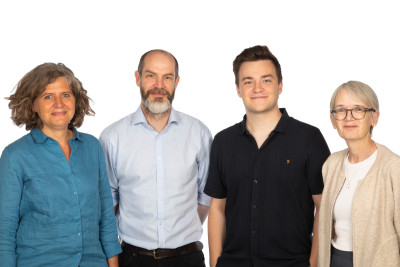
A young adult liver clinic at the Royal Free London is transforming how care is provided to patients aged 18-30, giving them tailored support and improving their engagement with healthcare.
The clinic’s aim is to give specialised care to patients in managing their liver health before transitioning to adult care, and includes a team of psychologists, physicians, clinical nurse specialists and support workers.
Prior to the clinic being set up, young adults were treated alongside older adults in general clinics, which often led to disengagement.
Neil Halliday, consultant hepatologist, said that this was not the best way to treat patients.
“It is recognised that young people as a group have worse outcomes if their care is not tailored to their lives,” Neil said. “Adolescence is now recognised to last until about 23 or 24 years of age, and that really does impact decision making, psychology and general understanding of health conditions.”
“Anyone coming up from paediatric medicine also has to learn to navigate new care systems and approaches in adult medicine. Paediatrics often has additional resources that are structured quite differently – unsurprisingly engagement would drop."
Neil also explained that liver disease can be stigmatising, and there's a lot of misinformation about what liver disease is. “We play a large role in changing the patient’s understanding of their condition,” he said.
The clinic is located at the Royal Free Hospital, and accepts referrals from across north London and beyond, including patients who previously attended paediatrics liver services at other hospitals. It also supports liver transplant patients from a wide area during treatment and follow-up phases. Over 75 patients have gone through the clinic, which takes place once a month.

The condition happens when the body’s immune system attacks the liver, which can cause swelling, irritation and damage to it. Its exact cause is unclear, however certain genes make someone more likely to develop it, and some factors in a person’s environment can trigger the condition.
“The diagnosis was really upsetting,” Eloge said, “because with auto-immune diseases, they last until the end of your life.
“I didn’t know anything about it, and I was a student at the time so it was a lot to deal with. I had to come back to London from uni quite regularly in that first year to get it under control. That involved testing lots of medication and having scans.”
Following that first year, Eloge moved under the care of the young adult hepatology clinic.
A key part of the clinic is understanding and addressing the psychological, social and economic factors that impact young adults from engaging with healthcare.
“For example, a patient’s financial situation can really impact how they engage with us,” Nick said. “Childcare, travel or taking time off work or studies can be expensive for some.
“Navigating the healthcare system can also be confusing to patients, so we try to be really practical with our scheduling. That involves calling patients and working around their exams or other priorities, or simply offering blood tests immediately before or after an appointment to avoid asking patients to attend separate appointments. That flexibility is key to patient engagement.”
Eloge recently completed his studies at the University of Essex, now attends the clinic every three to four months. He says he is very glad to have the team’s expertise and guidance.
“The support of everyone in the clinic has been amazing,” he said. “Knowing I have their support and that I can contact them easily means I am informed about my condition and I feel very reassured.”
The Royal Free London is marking one year since the launch of our clinical strategy, with organ failure and transplantation being one of our group priorities.
 Translate
Translate